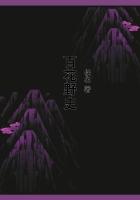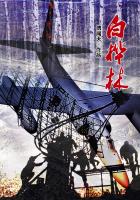"We find in Galileo not only literary distinction, but also the love of piety, and he is also strong in those qualities by which the pontifical good-will is easily obtained. And now, when he has been brought to this city to congratulate us on our elevation, we have very lovingly embraced him; nor can we suffer him to return to the country whither your liberality calls him, without an ample provision of pontifical love. And that you may know how dear he is to us, we have willed to give him this honourable testimonial of virtue and piety. And we further signify that every benefit which you shall confer upon him, imitating or even surpassing your father's liberality, will conduce to our gratification."The favourable reception which had been accorded to him by Pope Urban VIII. seems to have led Galileo to expect that there might be some corresponding change in the attitude of the Papal authorities on the great question of the stability of the earth. He accordingly proceeded with the preparation of the chief work of his life, "The Dialogue of the two Systems." It was submitted for inspection by the constituted authorities. The Pope himself thought that, if a few conditions which he laid down were duly complied with, there could be no objection to the publication of the work. In the first place, the title of the book was to be so carefully worded as to show plainly that the Copernican doctrine was merely to be regarded as an hypothesis, and not as a scientific fact. Galileo was also instructed to conclude the book with special arguments which had been supplied by the Pope himself, and which appeared to his Holiness to be quite conclusive against the new doctrine of Copernicus.
Formal leave for the publication of the Dialogue was then given to Galileo by the Inquisitor General, and it was accordingly sent to the press. It might be thought that the anxieties of the astronomer about his book would then have terminated. As a matter of fact, they had not yet seriously begun. Riccardi, the Master of the Sacred Palace, having suddenly had some further misgivings, sent to Galileo for the manuscript while the work was at the printer's, in order that the doctrine it implied might be once again examined. Apparently, Riccardi had come to the conclusion that he had not given the matter sufficient attention, when the authority to go to press had been first and, perhaps, hastily given. Considerable delay in the issue of the book was the result of these further deliberations. At last, however, in June, 1632, Galileo's great work, "The Dialogue of the two Systems," was produced for the instruction of the world, though the occasion was fraught with ruin to the immortal author.
[PLATE: FACSIMILE SKETCH OF LUNAR SURFACE BY GALILEO.]
The book, on its publication, was received and read with the greatest avidity. But presently the Master of The Sacred Palace found reason to regret that he had given his consent to its appearance. He accordingly issued a peremptory order to sequestrate every copy in Italy. This sudden change in the Papal attitude towards Galileo formed the subject of a strong remonstrance addressed to the Roman authorities by the Grand Duke of Tuscany. The Pope himself seemed to have become impressed all at once with the belief that the work contained matter of an heretical description. The general interpretation put upon the book seems to have shown the authorities that they had mistaken its true tendency, notwithstanding the fact that it had been examined again and again by theologians deputed for the duty. To the communication from the Grand Duke the Pope returned answer, that he had decided to submit the book to a congregation of "learned, grave, and saintly men," who would weigh every word in it.
The views of his Holiness personally on the subject were expressed in his belief that the Dialogue contained the most perverse matter that could come into a reader's hands.
The Master of the Sacred Palace was greatly blamed by the authorities for having given his sanction to its issue. He pleaded that the book had not been printed in the precise terms of the original manuscript which had been submitted to him. It was also alleged that Galileo had not adhered to his promise of inserting properly the arguments which the Pope himself had given in support of the old and orthodox view. One of these had, no doubt, been introduced, but, so far from mending Galileo's case, it had made matters really look worse for the poor philosopher. The Pope's argument had been put into the mouth of one of the characters in the Dialogue named "Simplicio." Galileo's enemies maintained that by adopting such a method for the expression of his Holiness's opinion, Galileo had intended to hold the Pope himself up to ridicule. Galileo's friends maintained that nothing could have been farther from his intention. It seems, however, highly probable that the suspicions thus aroused had something to say to the sudden change of front on the part of the Papal authorities.
On 1st October, 1632, Galileo received an order to appear before the Inquisition at Rome on the grave charge of heresy. Galileo, of course, expressed his submission, but pleaded for a respite from compliance with the summons, on the ground of his advanced age and his failing health. The Pope was, however, inexorable; he said that he had warned Galileo of his danger while he was still his friend.
The command could not be disobeyed. Galileo might perform the journey as slowly as he pleased, but it was imperatively necessary for him to set forth and at once.
On 20th January, 1633, Galileo started on his weary journey to Rome, in compliance with this peremptory summons. On 13th February he was received as the guest of Niccolini, the Tuscan ambassador, who had acted as his wise and ever-kind friend throughout the whole affair.















